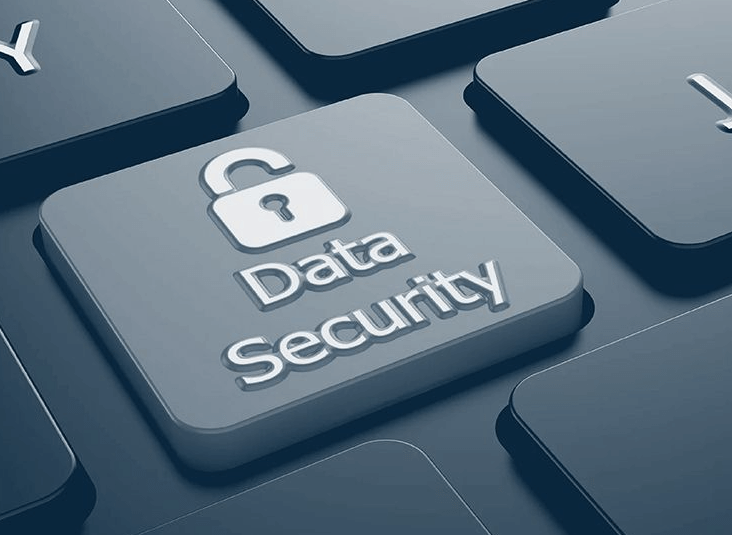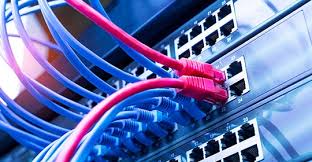Ai Vs Cybersecurity Which is Better

Artificial Intelligence (AI) and cybersecurity are the most rapidly evolving technological fields today. Both have the potential to greatly impact the way we live and work, but they also present new challenges and risks. This article will explore the relationship between AI and cybersecurity, examining how they can be used together to improve security and protect against cyber threats.
Contents
Ai Vs Cybersecurity Which Career is Better?
AI in Cybersecurity
AI is increasingly being used to improve the capabilities of cybersecurity systems. One of the key applications of AI in cybersecurity is in threat detection and response. AI algorithms can analyse large amounts of data and identify patterns that indicate a potential security threat. This can help organisations to detect and respond to cyber attacks more quickly and effectively.
The advantages of using AI in cybersecurity include improved efficiency and accuracy. AI algorithms can process large amounts of data much faster than humans and identify patterns that humans might miss. This can lead to more accurate and effective threat detection and response.
However, using AI in cybersecurity has limitations and potential drawbacks. One of the main concerns is that AI systems may need more transparency, making it easier to understand how they make decisions. This can make it difficult to identify and fix errors or biases in the system. Additionally, AI systems can be vulnerable to cyber attacks like any other system.
Read Also: What is It Like Working in Cyber Security?
Cybersecurity in AI
As AI becomes more prevalent, ensuring that these systems are secure and trustworthy is becoming increasingly important. Cybercriminals can target AI systems that want to steal data or disrupt operations. This is why cybersecurity measures are essential for protecting AI systems.
There are several methods of protecting AI systems from cyber attacks. One of the most important is access control, which ensures that only authorized users can access the system. This can be done through authentication methods such as passwords or biometrics. Also, encryption can protect data from being stolen or intercepted.
Another important aspect of cybersecurity in AI is responsible AI development and deployment. This involves designing and building AI systems that are transparent, explainable, and accountable. It also involves ensuring that AI systems are not biased and do not discriminate against certain groups of people.
Comparison of AI and Cybersecurity
Both AI and cybersecurity are critical for protecting modern technology and data. AI can improve cybersecurity capabilities, but it also poses new security risks. On the other hand, cybersecurity measures are essential for ensuring AI’s safe and responsible use.
AI can improve threat detection and response, but it also requires proper security measures to protect against cyber attacks. Similarly, cybersecurity measures can be used to protect AI systems. Still, they need to be designed and deployed responsibly to ensure that they do not discriminate against certain groups of people.
Pros and Cons of AI and Cyber Security
AI (Artificial Intelligence) Pros:
- Improved Efficiency: AI algorithms can process large amounts of data much faster than humans, leading to more efficient and accurate threat detection and response.
- Automation of repetitive tasks: AI can automate repetitive tasks such as monitoring networks, identifying patterns and analysing data, which can free up human resources for other important tasks.
- Continuous learning: AI systems can continuously learn and adapt to new threats, making them more effective.
- Cost-effective: AI systems can be more cost-effective in the long run as they can automate many tasks, reducing the need for human resources.
AI Cons:
- Lack of transparency: AI systems may need more transparency, making it difficult to understand how they are making decisions, which can make it difficult to identify and fix errors or biases in the system.
- Vulnerability to cyber attacks: AI systems can be vulnerable to cyber attacks like any other system, which can put sensitive data and operations at risk.
- Dependency: Over-reliance on AI can make organisations dependent on these systems, leading to a lack of preparedness in case of system failure or cyber-attack.
- Bias: AI systems can perpetuate and even magnify human biases if the data sets used to train them are biassed.
Cybersecurity Pros:
- Protection of sensitive data: Cybersecurity measures can help protect sensitive data such as personal information, financial data, and intellectual property from being stolen or compromised.
- Compliance: Cybersecurity measures can help organisations comply with regulations such as HIPAA and PCI-DSS, which can help avoid costly fines and penalties.
- Business continuity: Cybersecurity measures can help ensure business continuity by protecting against cyber-attacks that disrupt operations.
- Reputation management: A good cybersecurity posture can help protect an organisation’s reputation by preventing data breaches that can damage public trust.
Cybersecurity Cons:
- Cost: Implementing and maintaining cybersecurity measures can be costly, especially for small and medium-sized businesses.
- Complexity: Cybersecurity can be complex, and it can be difficult for organizations to keep up with the latest threats and regulations.
- False sense of security: Cybersecurity measures can give organizations a false sense of security, leading to complacency and a lack of preparedness in case of a cyber attack.
- Overhead: Implementing and maintaining cybersecurity measures can be time-consuming and take away from other important business activities.
Conclusion
AI and cybersecurity are interrelated fields critical for protecting modern technology and data. AI can improve cybersecurity capabilities, but it also poses new security risks. Cybersecurity measures are essential for ensuring the safe and responsible use of AI. Collaboration between AI and cybersecurity experts is crucial for ensuring a secure future. It is important for organisations and individuals to stay informed about the latest developments in both AI and cybersecurity and to take appropriate measures to protect themselves from cyber threats.
Frequently Asked Questions
Q: Which field is more important for protecting technology systems, AI or cybersecurity?
A: AI and cybersecurity are critical for technology systems’ safe and secure operation. They are interrelated, and both are important for the future of technology.
Q: Can AI be used to improve cybersecurity?
A: AI can improve cybersecurity by detecting and responding to threats in real time.
Q: Is cybersecurity necessary to protect AI systems from malicious attacks?
A: Yes, cybersecurity is necessary to protect AI systems from malicious attacks and ensure the integrity and confidentiality of the data used to train and operate AI systems.
Q: Which field has more job opportunities in the future, AI or cybersecurity?
A: AI and cybersecurity are expected to have strong job growth in the future as technology continues to expand in various industries.
Q: Can AI be used to replace cybersecurity professionals?
A: AI can assist cybersecurity professionals in their work, but it is likely to replace them partially. Cybersecurity is a complex field that requires human expertise and judgement to fully understand and protect against threats.




![9 Top Security and Privacy Apps for Android [2023] 5 9 Top Security and Privacy Apps for Android [2023]](https://bytevarsity.com/wp-content/uploads/2020/09/Security-and-Privacy-Apps-for-Android-min.png)
